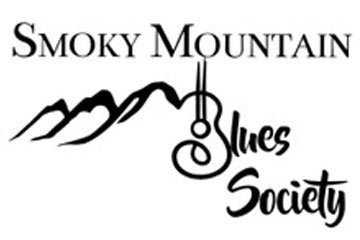
- This event has passed.
Tennessee Shines – 8/7 – Dylan LeBlanc / Sarah Shook & the Disarmers / Ismay
August 7, 2024 @ 7:00 pm
CLICK HERE FOR TICKETS!
Dylan LeBlanc is a singer-songwriter and multi-instrumentalist who often finds himself flirting with the edge — or “dancing on a razor,” as he calls it — as it is all he has ever known. A verdict vagabond since he was a little boy tossed between Texas, Louisiana and Alabama, LeBlanc thrives on the precipice, never staying in one place for too long. It is that nomadic spirit that drew him not only to a life as a touring musician, but also to the beast that titles his newest record: ‘Coyote.’
LeBlanc says he has always related to the insatiable, scavenging nature of the wily coyote. Much like the animal, LeBlanc is a wanderer who knows when to trust his instincts, musically and otherwise. It is a spiritual kinship that runs deep, but he credits one particularly hair-raising face-to-face instance with solidifying his bond with the animal.
LeBlanc was in Austin, Texas, climbing the face of a 100-foot cliff, gambling with Mother Nature’s good graces as he pulled himself up by tree branches. Once he reached the top, all that laid ahead of him was a lush treeline. There was a breath of stillness, then the sound of a thunderous rustling that drew closer and closer to him. In a blink, LeBlanc watched as a frenzied raccoon came speeding out of the treeline, trailed by an animal that stopped and stared at him with striking intensity: a coyote.
“We’re looking at each other dead in the eyes…and I’m saying — out loud — ‘If it’s you or me, I am going to kick you off the side of this cliff. I’m not going down.’ It was intense, this human-animal moment,” LeBlanc recalls. “I’ve never forgotten that… he was just trying to survive and so was I.”
‘Coyote’ is LeBlanc’s first self-produced release, boasting a cherry-picked lineup of what he calls “killer session players,” such as drummer Fred Eltringham (Ringo Starr, Sheryl Crow), pianist Jim “Moose” Brown (Bob Seger), and bass player Seth Kaufman (Lana Del Rey). Though ‘Coyote’ covers familiar ground for LeBlanc of living on the edge of danger and its many consequences, the record is both autobiographical and a concept album built around the character of Coyote, a man on the run.
The story of ‘Coyote’ progresses linearly, opening with the dizzyingly declarative, strings-heavy title track which details Coyote’s arrival and quick departure as he crosses the border and gets involved with drug cartels. The trouble builds and dark waters rise until track six, “No Promises Broken,” a soaring, against-all-odds love song that marks when Coyote meets a girl, and his luck begins to change for the better. The song tells of how love heals, and places emphasis on lovers remaining open while maintaining their own freedoms, as LeBlanc believes that true devotion does not equal possession. He says that though both Coyote and his love each faced adversity, the hand of destiny put them on the same path and bound them together before they ever met:
“‘No Promises Broken’ is an honest love song about two people who come from the same troubled past, and fate intertwines them together. It’s about acknowledging that there will be hard times ahead, but vowing to stick it out without making promises to each other that they know they can’t keep.”
“Wicked Kind” delves into Coyote’s addiction and warns of ever-present temptation looming on the horizon, and the restraint it takes for him to look away. The LP closes with “The Outside,” the title of which LeBlanc says is meant to be literal, as Coyote is outside of prison walls at last. With boundless slide guitar and skittish keys, it paints a haunting, desert highway vignette of Coyote fighting off lingering ghosts that breed a hesitance so potent that Coyote has to adjust his perspective and remind himself that he is free — the fight is over.
LeBlanc has seen shades of a life not unlike the character of Coyote. He, too, strayed from the straight and narrow and sparred with managing anger in his adolescence. Just as the brutal truth of “Hate” describes that the most gnarled parts of Coyote were molded by his harrowing experiences, it is something LeBlanc feels is universal, as hate does not discriminate.
“I went to school with people from all walks of life. We were different, but we thought, ‘We’re all poor,’ so we’re all in the same boat. We all grew up in chaos. It was the ‘90s in Louisiana on the border of Texas… that air was thick, man. Sink or swim type of mentality.”
LeBlanc is the first to warmly acknowledge his rough edges and tendency to chest-up to conflict, both the result of the volatility and instability of his youth. Now, no longer a boy who always had to be on alert and ready to defend himself, LeBlanc recognizes that his roots do not define or limit the man he is today. The cover art of a coyote wounded by arrows reflects just that, symbolizing LeBlanc’s resilience through what he has experienced:
“The coyote is still upright, even though he’s full of arrows, even though he has been shot at and wounded many times. He still keeps going in defiance of everything that has been thrown at him. You can’t get an arrow out completely. You can break one side of it off, but the arrow is still there… there’s still a scar. It becomes a part of you… of your identity.”
Considering the distinct wisdom and lifetimes in his voice, it is no surprise that LeBlanc has known hardships, but he is a shining example of what beauty comes from perseverance. LeBlanc’s tenacity has paid off in spades, leading him to a record deal with ATO Records, releasing the critically acclaimed ‘Renegade’ in 2019, and now ‘Coyote,’ which LeBlanc says is “the record he has always wanted to make.”
Now in his thirties with a fiancé and a daughter he adores, LeBlanc is the closest he has ever been to the man he has always strived to be. With endearing candor, he confesses he is still learning to be less hot-headed and more gentle; but he doesn’t think about dying every day, like he used to. LeBlanc credits fatherhood for the perspective he has now on what matters, and his key concern is remaining devoted to those he loves most. Though far removed from a perilous life like Coyote’s, LeBlanc admits he still feels as if he is dancing on a razor’s edge all the same. The goodness he is surrounded by only gives him more to lose, with each glimmer carrying an asterisk of fear. One misstep and he worries that it all could vanish, but the lionhearted LeBlanc seems to forget he once unnerved even a wild coyote with his eyes alone.
CLICK HERE FOR TICKETS!
Desert Pavement, the sophomore release from ISMAY, is a tapestry of alternative American roots music, full of alt-country textures and woozy folk songs that transcend traditions and blur boundaries.
For Avery Hellman, the Bay Area native behind ISMAY’s unique sound, the album builds a bridge between past and present. “I create music that’s informed by older traditions and makes you feel the way old folk music does,” they say, “but it doesn’t sound like something you’ve heard before.”
Like Songs of Sonoma Mountain, ISMAY’s critically acclaimed debut, Desert Pavement was heavily influenced by the California ranch where Hellman spent most of their 20s working the land. “My mom bought the ranch when I was 19 years old,” Hellman remembers. “Environmental restoration was very important to her, and I was with her every step of the way, working to develop the ranch, raise cattle, replant creeks, and tend to the sheep. The perspective of my songwriting is very rooted in ranch life.”
Listening to Desert Pavement is a vivid (and often visual) experience, with songs that evoke the landscapes and lifestyles of rural California. “Shearer and the Darby Ram,” the album’s opening track, is a modern-day folk tale, blending acoustic guitars with an imaginative storyline about a larger-than-life ram whose wool changes a family’s fortune. It’s based upon an old British tall tale, but ISMAY breathes new life into the narrative by focusing not upon the animal itself, but upon the child called to shear it. “Stranger in the Barn” is similarly inventive. The track unfolds like a bluegrass-inspired mountain song, punctuated by bursts of mandolin, brushed percussion, and ISMAY’s breezily gorgeous vocals. At its center is a storyline about a family who discovers a drifter sleeping in the sheep barn. Rather than run him off, the family embraces the newcomer like one of their own. ISMAY turns the song into an allegory about human decency. “The story is about taking down our walls, and rather than meeting the unknown with contempt and anger, instead offering curiosity,” Hellman clarifies.
California may be one of Hellman’s muses, but that didn’t stop the songwriter from traveling 2,600 miles east — to the famed Echo Mountain Recording studio in Asheville, North Carolina — to capture these songs in a series of live takes. “We recorded 13 songs in five days,” Hellman remembers. “The whole band played together, all at once, and I tracked my vocals live. A big part of the live recording process is embracing the imperfections of a performance, and Desert Pavement sounds real and raw to me.”
It sounds experimental, too. “The Dove, The Shrew, & The Raccoon” blends American folk influences with south-of-the-border rhythms, while “Streaming Family” — a song about modern technology’s impact on our daily lives — pits traditional instrumentation against a contemporary message. While writing material for the album, ISMAY found a new collaborator in Andrew Marlin, best known as a member of the progressive folk band Watchhouse (formerly Mandolin Orange). The two came from different backgrounds — not only geographically, but musically, too — and ISMAY was intrigued by the idea of Marlin producing the album. “I didn’t know what the outcome was going to be, and I liked engaging with the uncertainty of that,” Hellman says. “Andrew took an experimental approach to the recording process, which I loved. He’d record a guitar part by setting up the microphone in an entirely different room, to capture the sound of the space itself. He’d record our backing vocals through a Leslie speaker. He liked being impulsive, and that was a nice change for me.”
Another change was Hellman’s songwriting itself. With 2020’s Songs of Sonoma Mountain, Hellman had looked to songwriters like Leonard Cohen for inspiration, resulting in a darker, melancholic album anchored by Hellman’s fingerpicked guitar. Creating Desert Pavement was a different experience. “I was hugely inspired by Bonny Light Horseman’s debut record, and I began writing songs that were based in rhythmic strumming rather than fingerpicking,” Hellman says. “I didn’t know what sound I was creating at first, but I knew I was writing songs that made me curious. That was the most important thing to me. I’m not trying to copy anybody else or take a pre-determined path with my music. I’m just trying to be me, whatever that may be.”
Desert Pavement is an album that owes that owes more to geography than genre. It’s the unique sound of the New American West. For Hellman — who grew up attending Hardly Strictly Bluegrass, the music festival launched by their grandfather, Warren Hellman — California has always been a melting pot of cultures and art, with Desert Pavement serving as the newest entry in the state’s musical history. “It’s obvious that psychedelic music, alternative music, and the Summer of Love all influenced the music that’s made our here,” they say. “It’s a music that’s open-minded and experimental. It’s music that doesn’t feel the need to be boxed in.”
In other words, it’s ISMAY’s kind of music. With Desert Pavement, ISMAY paves a path toward a new horizon, filling the journey with songs about the sights, sounds, and singular characters found way out west.
CLICK HERE FOR TICKETS!
It’s obvious listening to Sarah Shook and the Disarmers’ clear-eyed, biting, and unafraid songs that integrity is the most important thing to the Chapel Hill, North Carolina, country-punk outfit. “A lot of artists are in this industry for fame, recognition, and money but those things don’t mean anything to me,” says bandleader River Shook. “Songwriting is it for me. It’s the only real healthy coping mechanism I’ve ever had. It’s life-saving. I don’t care about any superficial things when I’m making a record.” On their resonant fourth album Revelations, produced by Shook and out March 29 via Thirty Tigers, these raw and resilient tracks come first. Throughout, Shook’s deft storytelling documents regular people getting by and keeping on, all presented without filter or pretension.
In 2022, Shook was remarkably productive. They released two albums: debut solo indie rock record Cruel Liars under the moniker Mightmare (Kill Rock Stars) and a third Disarmers full-length called Nightroamer (Thirty Tigers). Compared to every Disarmers record before that, which captured the in-the-room energy of the band with live recorded songs, the latter LP was instead more of a product of the studio with meticulous tracking sessions and an outside producer. While that effort was well-received, Shook believed the songs on Revelations deserved a more direct approach. “Since the Disarmers started in 2015, our strength has always been in our live performance,” says Shook. “To me, an album should capture the essence of a band. With this new set of songs that are all super special to me, I didn’t trust anybody else to capture the songs and decide how to best serve each song.” Shook, who honed their production skills with their Mightmare LP and Izzy Ryder’s debut record, confidently took the reins during a blistering recording session, capturing 10 songs in two days.
For Shook, it was paramount the recordings match the band’s tangible live ferocity because these songs boast their most immediate lyrics yet. “All of my writing is autobiographical, and I write everything based on my observations and experiences,” says Shook. “But there was something about Revelations that felt more personal to me. I unlocked this level of honesty with myself and an ability to be more objective about the things I struggle with daily.” Take the title track, which finds Shook singing about the precariousness of navigating mental health under capitalism. Over a rollicking, twang-hued arrangement, they sing, “Black cloud followin’ me around, little storm in my head / Some days I levitate off the ground, some days I can’t get outta bed.” The track doesn’t preach or romanticize. Instead, it’s galvanizing and relatable.
These are lived-in stories about real people with real dreams, atmospheric pasts, and inescapable problems. “I think of myself as a collector: I just go around and collect experiences and observations,” says Shook. “I’m still adjusting to writing songs as a sober person but a lot of the themes are just about being a working person and navigating mental health and relationships with other people going through the same things.” Lead single “Backsliders” comes directly from Shook’s life when they were a bartender at a Chapel Hill dive called The Cave. The song is a deceptively breezy romp about workplace romantic entanglements with Shook singing, “Love you like a breath when I ain’t workin’ myself to death / cause I’m longin’ for the ghost of a friend.” On one hand, it captures the closeness that only service workers can experience on the job but on the other, it plainly states how easy it is to fall into bad habits when dealing with any type of loss.
Throughout the LP, there are cathartic, snarling kiss-offs to villainous men (“Motherfucker”) but also moments of tenderness and ecstasy. Shook describes closer “Criminal” as their “gay cowboy song”, the torturous longing of the lyrics is anchored by shimmering guitar leads from Blake Tallent and bastioned by drummer Jack Foster’s hypnotic rhythms. River sings, “If lovin’ you will always be a crime I’ll always be a criminal.” It’s a triumphant line that highlights Shook’s emotional sturdiness. “That line got me thinking about how we as queer people have been persecuted, and how we so often have to keep all kinds of things under wraps because of the law because of social taboo,” says Shook. “I wanted “Criminal” to portray these feelings of longing and desire that two gay people can have for each other. They’re complicated feelings because human beings are complicated. Gay love is every bit as complicated as straight love.”
Revelations is the most assured Sarah Shook and the Disarmers record yet because it so pointedly captures the gamut of the human experience: anger, sadness, confusion, love, and acceptance. It’s a document of Shook at the top of their game and a reflection of their own journey not just as a writer but as a person. “I’m a firm believer that if you are an artist, and you want to make better art, a big part of that isn’t just exercising your musical skills, it’s growing as a human being,” says Shook. “So every time I make a record, I want to be able to listen to it and look back on who I was then. I want to see this arc and this evolution. That’s really fucking important to me.”
CLICK HERE FOR TICKETS!
Tennessee Shines is supported by Tennessee Stone and Visit Knoxville.








